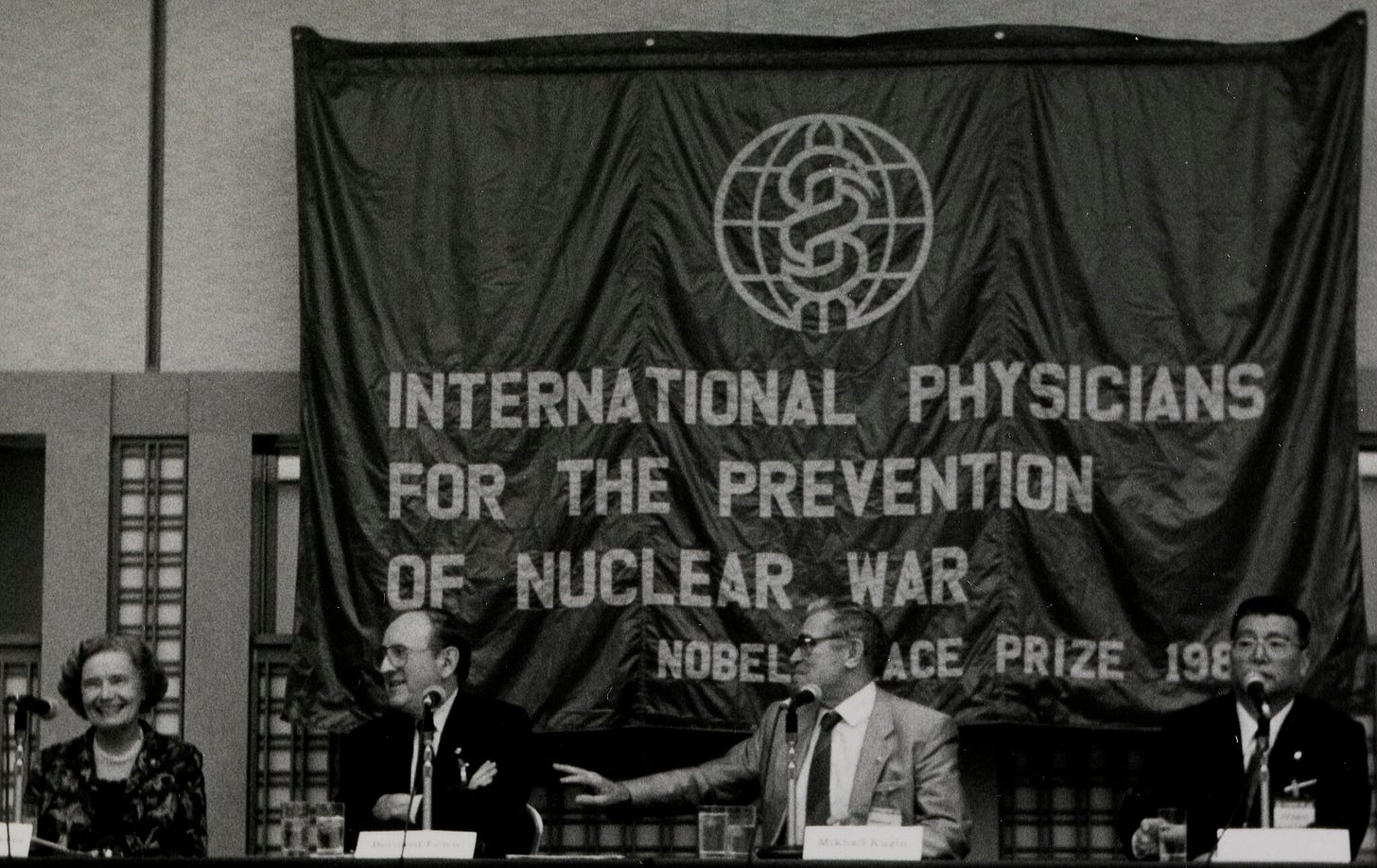Failed Afghanistan Sanctions, Nigeria Kidnappings, Anti-Nukes Movement, and More
This week at Inkstick Media.
Hello, everyone.
In Nigeria, a spate of kidnappings and other signs of waning security have left many criticizing the country’s intelligence services, as Promise Eze reports.
Meanwhile in Afghanistan, the Taliban’s return to power has led to reinvigorated draconian rule. But if decades of American and Western intervention in the country show anything, it is that sanctions fail — and more times than not they harm the people they are meant to protect, as Delaney Dorsey argues in new commentary.
Over the decades, the movement against nuclear weapons racked up a number of victories. But with the world still hurtling toward nuclear or environmental destruction, William D. Hartung argues, building a reinvigorated disarmament movement remains a pressing duty.
That’s not all we’ve got at Inkstick. And if you’re not already, please follow us on Twitter, LinkedIn, Threads, Facebook, Instagram, and YouTube.
“Nigeria’s Kidnapping Crisis Highlights the Country’s Problematic Intelligence Infrastructure” by Promise Eze (Feb. 5)
Nigerians have expressed serious concern about kidnappings and escalating insecurity. They have long questioned the effectiveness of the country’s intelligence gathering and criticized the perceived failure of various security agencies in addressing insecurity. Whether the problems are technical, political, or both, it is civilians who pay the price.
“Sanctions Failed in Afghanistan. They Also Hurt Women the Most” by Delaney Dorsey (Feb. 5)
There are innumerable lessons we could and should learn from the failures of Western intervention in Afghanistan over the past 25 years. One of the most glaring realizations should be the senselessness of economic sanctions. Contrary to how sanctions are portrayed, they do not protect civilian lives — and gender plays a determining role in whose lives are affected most severely.
“What’s Driving the European Union’s Farmers Protests?” by Victoras Antonopoulos (Feb. 6)
In recent weeks, farmers across the European Union have rallied from France to Lithuania. Angry over import competition, regulations, and rising expenses, they are calling on the EU to take action to protect the agricultural industry. In Greece, many farmers say their problems are compounded by widespread crop damages caused by last year’s wildfires and floods.
“You’re Right: The World Is Getting More Violent” by Clionadh Raleigh (Feb. 6)
Your news feed is likely filled with reports of rising violence. And you’re right: global rates of conflict are rising — dramatically. The pandemic saw a drop in conflict generally, but there has been a swift and sudden drive upwards since. The result is that we are living in a world indifferent to harms inflicted upon its citizens from many corners.
“Strangelove Days: The Seeds of a New Disarmament Movement” by William D. Hartung (Feb. 7)
The Bulletin of the Atomic Scientists maintained its “Doomsday Clock” — a measure of how close humanity stands to nuclear or environmental annihilation — at 90 seconds to midnight. Advocates of ending the nuclear danger are hopeful that a recent convergence of events might force the issue back into the public consciousness in a way it has not been since the anti-nuclear movement of the 1980s.
“Can Someone Please Talk about Haiti?” by Anne-Gaëlle Lissade (Feb. 7)
Over the past decades, the situation in Haiti has often been highlighted in the news or the radio: the sensationalism of the earthquake, Kanye West’s dancing in the streets of Cap Haitian, and some media reminders here and there that Haiti remains “the poorest country in the Western Hemisphere.” However, there is a silence now, a haunting one.
“Deep Dive: What We Talk About When We Talk About Love (in War)” by Emily Tamkin (Feb. 8)
Hilary Matfess’s new study opens by asking what it means to be in love during war. Matfess found that “whether rebel groups commit themselves to marriage, bar it entirely, or reinterpret the ceremonies and practices associated with marriage, their decision has important implications for both the rebel organization and individual members.”
“How Guinea-Bissau’s Political Crisis Could Boil Over” by Obiora Ikoku (Feb. 8)
Two months after an alleged coup attempt in Guinea-Bissau, the political fissures are still sharpening fears among many Bissau-Guineans. The president has accused the opposition of attempting to undermine the country’s democracy, a charge the opposition has lobbed back at the president. At a time when coups have found currency in West Africa, will Guinea-Bissau’s political crisis boil over?
“Why Armenia and Azerbaijan Still Can't Reach a Peace Deal” by Alex Little (Feb. 9)
While it is important that both sides remain engaged in negotiations, a sustainable peace settlement between Armenia and Azerbaijan remains as elusive as ever. The question in Washington remains: Can the United States do anything to help the situation?
From the desk of Patrick Strickland, managing editor of Inkstick Media.





